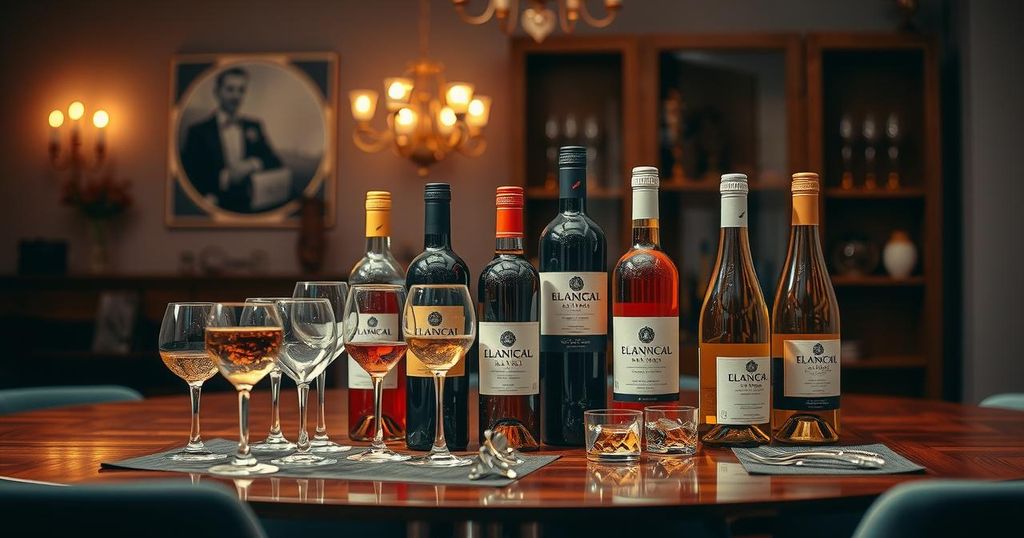The UAE is becoming an influential growth hub for the luxury wine industry, driven by its economic diversification and tourism expansion. Despite regulatory challenges, major wine distributors have reported strong growth following tax adjustments, underscoring a booming market. The luxury hotel sector plays a crucial role while consumer engagement strategies adapt to regional sensitivities, paving the way for future enhancements and opportunities.
The economic growth and tourism influx in the Gulf region are significantly contributing to the development of the global wine industry, as outlined by Gabriel Stone. The UAE, particularly Abu Dhabi and Dubai, showcases remarkable population and GDP growth, reflecting a shift from oil dependency towards a diversified economy.
Tourism is central to UAE’s economic strategies, presenting an opportunity for wine to flourish despite cultural sensitivities regarding alcohol. Wine trading, particularly in Dubai, has partners like African + Eastern and MMI that have reported substantial growth following the suspension of the 30% sales tax, encouraging consumers to explore various wine options.
Tony Dodds from MMI credits the recovery to various new establishments and increasing tourist numbers. Conversely, Matthew Castle from African + Eastern notes the potential challenges ahead as the sales tax is reinstated, yet both companies are committed to minimizing consumer price impacts while maintaining growth in fine wine sales.
The luxury hotel sector plays a vital role in wine exposure, with brands like Penfolds capitalizing on exclusive partnerships in prestigious venues. Direct engagement with consumers, however, faces challenges in off-trade due to regulations hindering advertising and promotion. Wine brands are thus focusing on personal outreach to enhance visibility and brand loyalty.
Brands such as Domaine des Tourelles from Lebanon succeed in the competitive market mainly due to the strong Lebanese community, while Argentina’s Achaval Ferrer reports significant growth despite lower market share. Personal interaction and education through sommeliers have become essential strategies in promoting wine brands in this emerging market.
The UAE wine market, rich with European expatriates, mirrors trends seen in cities like London, albeit with differences in available selections. The growing number of international restaurants is influencing wine lists and consumer expectations. Names like Jason Atherton and Lorenzo Abussi are contributing to this evolution through curated wine experiences.
Abu Dhabi’s wine retail market, noted for its diversity and competitiveness, is evolving with establishments like The Bottle Store utilizing technology for efficient service. The rise of home delivery models aligns with changing consumer behavior, reflecting an appetite for knowledge and quality choices in the wine sector.
Overall, the UAE wine market showcases vitality and potential for growth, encouraging investment and innovation. As the region adapts to the complexities of wine commerce, its narrative continues to develop, promising a bright future for luxury wine offerings.
The UAE has emerged as a significant player in the global wine market due to its economic diversification and rising tourism. Despite certain challenges such as cultural sensitivities and reinstated taxes, the market exhibits strong growth opportunities, particularly among luxury hotels and innovative retail models. The wine industry’s success relies heavily on direct consumer engagement and the collaboration with sommeliers, enhancing market presence. Overall, the future of luxury wine in the UAE appears promising, with continued investment and development likely to propel its growth even further.
Original Source: www.thedrinksbusiness.com




